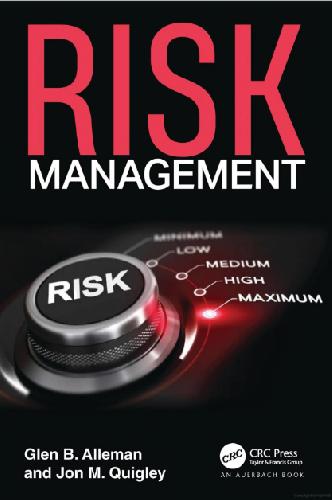Risk management
Glen B. Alleman
Jon M. Quigley
Project success is an elusive goal in every business or technical domain. Project failure usually results from unhandled risks to the technical, cost, and schedule aspects of the project. There are four primary root causes of project failure. Unrealistic performance expectation, with missing Measures of Effectiveness Unrealistic cost and schedule estimates based on inadequate risk adjusted growth models Inadequate assessment of risk and unmitigated exposure to these risks without proper handling strategies Unanticipated technical issues with alternative plans and solutions to maintain the effectiveness of the project processes and its deliverables Risk Management provides a comprehensive overview of the people, principles, processes, and practices as the fundamental base upon which an effective risk management system resides. However, this does not guarantee effective risk management and successful projects and businesses. The first half of the book describes risk management processes, as well as a delineation between risk and hazards and how these are connected. The second half of the book provides industry examples of the approach to risk management in specific context and with specific approaches and artifacts where applicable. The book focuses on risks created by uncertainty, their identification, and the corrective and preventive actions needed to address these risks to increase the probability of project success. The books goal is to provide a context-driven framework, developing a foundation for a rational approach to risk management that makes adaptation to circumstances as easy as possible.
- No. Panggil 658.404 ALL r
- Edisi
-
Pengarang
Glen B. Alleman
Jon M. Quigley - Penerbit New York Auerbach Publications Taylor Francis Group 2024

